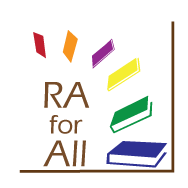Lee & Low have release their third Diversity in Publishing Baseline Report. Below I have reposted the introduction, but you should click here to read the entire thing.
From the Diversity Baseline Survey landing page (different than the page with the current report):
Lee & Low Books released the first Diversity Baseline Survey (DBS 1.0) in 2015. Before the DBS, people suspected publishing had a diversity problem, but without hard numbers, the extent of that problem was anyone’s guess. Our goal was to survey publishing houses and review journals regarding the racial, gender, sexual orientation, and ability makeup of their employees; establish concrete statistics about the diversity of the publishing workforce; and then build on this information by reissuing the survey every four years. Through these long-term efforts, we would be able to track what progress our industry shows over time in improving representation and inclusion.
The fact that this is the 3rd iteration has made the results and reporting even more useful and significant.
And full disclosure: As a reviewer for a major journal, I was one of the people surveyed for this report.
Click here or see below to get started reading the results.
WHERE IS THE DIVERSITY IN PUBLISHING? THE 2023 DIVERSITY BASELINE SURVEY RESULTS
INTRODUCTION

The Diversity Baseline Survey was created to answer a question: Does the book industry have a diversity problem? A benchmark to measure the demographics of the publishing workforce was missing from the larger conversation about representation in books. First executed in 2015 and then in 2019, the Diversity Baseline Survey has become an industry standard, providing a way to track whether publishing’s inclusive hiring practices are working. See data from the previous studies—2019 and 2015—for comparison.
Employers are routinely vociferous about their commitment to Diversity, Equity, Inclusion (DEI) initiatives without implementing the transparent means to monitor results. We know institutional change takes time to bear fruit, which is why revisiting the survey every few years is so vital.
WHY DOES DIVERSITY IN PUBLISHING MATTER?
People from all backgrounds are demanding to see themselves in media. Thanks to the Cooperative Children’s Book Center at the University of Wisconsin-Madison, we know there are more diverse children’s and young adult books being published today. We also know the book industry’s power as a form of cultural expression and as a tastemaker. Television, film, and theater are influenced by publishing trends and successes. It has been heartening to see diverse casting reflected in the many book-to-screen adaptations—irrevocably altering who is seen and heard.
It’s imperative the publishing workforce continues to reflect the many lived experiences in North America. As gatekeepers, we decide what stories get published, which creators get the extra sales or marketing push, and which books get reviewed. Our industry greatly benefits from a diverse workforce to shape the voices and characters that will appeal to a wide audience.
While the 2023 Diversity Baseline Survey results still indicate a majority workforce of straight, nondisabled, White women, there are noticeable percentage changes across various categories. For example, when the DBS was first administered in 2015, 79% of the respondents identified as White. In 2023, 72.5% identified as White. This marked improvement shows that the publishing industry is becoming more inclusive, albeit incrementally so.
THE LAST FOUR YEARS
To say a lot has happened since 2019, when the last DBS results were released, is an understatement. In the US, the political climate feels increasingly polarized as we fight to preserve our democracy. As global citizens, we also bear witness to geopolitical instability and violence from all corners of the planet. These events, among many others, have shaped our worldview:
- The COVID-19 pandemic killed over 7 million people and temporarily shut down the world.
- People worldwide rose up to protest state-sanctioned violence and racial injustice in the wake of George Floyd’s murder by police.
- The US Supreme Court issued judgments ending affirmative action and the federal right to abortion.
Within our industry, important conversations are changing the landscape:
- Grassroots organizations People of Color in Publishing and Latinx in Publishing released the findings of their Workplace Racism Survey.
- PEN America also offered its analysis of the industry in its Reading Between the Lines report.
- The American Library Association reported the highest number of attempted book bans since ALA began compiling data about censorship in libraries more than 20 years ago. Many of the books being challenged are by and about people of color and/or who are LGBTQ+.








No comments:
Post a Comment